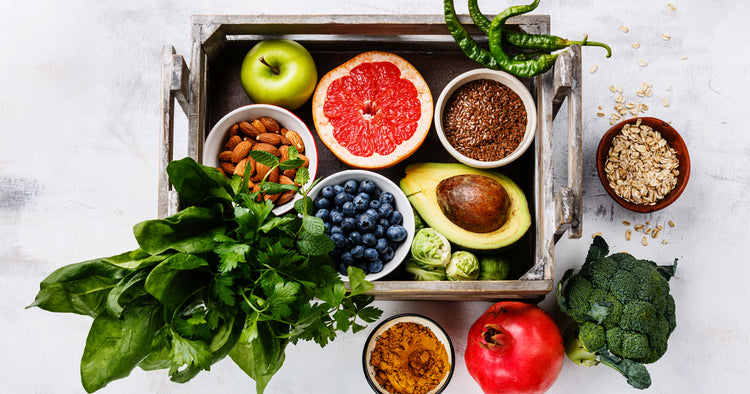Antioxidants are nothing new, but we still see the buzzword pop up on packaging and labels all the time. So, what exactly are antioxidants and what can they do for your body? Keep reading to learn more about antioxidants, and how to add more of them to your diet.
What are Antioxidants?
Antioxidants are molecules that fight free radicals in your body. Free radicals are complicated, but basically, they are compounds that can cause harm if their levels rise too high in your body. A high level of free radicals in the body causes oxidative stress, which may damage your cells and lead to chronic disease.
Luckily, we aren’t defenseless against free radicals. Antioxidant refers to the property of different substances that fight against free radicals. There are hundreds of different substances that can act as antioxidants. The most familiar ones include Vitamin C, Vitamin E, carotenoids, selenium, manganese. Others include coenzyme Q10, flavonoids, phenols, polyphenols, and many more! Each antioxidant is unique and plays a different role in the human body.
Your body generates its own antioxidants to keep free radicals in check, however, you can also consume antioxidants by adding certain foods to your diet. They are found in many fruits and vegetables, and other whole foods.
Benefits of Antioxidants
Excessive free radicals contribute to chronic diseases including cancer, heart disease, cognitive decline, and vision loss. While antioxidants do fight against free radicals, this doesn’t mean substances including antioxidants will directly fix these issues, particularly when removed from their natural context.
While studies still aren’t conclusive about the full benefits of antioxidants in fighting disease (particularly in supplement form), there is abundant evidence that eating whole foods – particularly fruits, vegetables, and grains all rich in antioxidants and other healthful nutrients – is associated with a lower risk of chronic oxidative stress. Eating more plant-based is also believed to protect against chronic oxidative stress related diseases such as cardiovascular disease and cancer.
What’s not clear is whether this protective effect is caused by the antioxidants in the food, other nutrients, or a combination of the two! Either way, eating more of whole foods is sure to provide benefits.
How to Eat More Antioxidants
Antioxidants are found in all whole foods of plant and animal origin, but some sources are higher than others. This means, surprisingly, meat and fish products contain antioxidants. Check out some naturally occurring sources of antioxidants you can consume in your diet.
Vitamin C: Broccoli, Brussels sprouts, cauliflower, cantaloupe, leafy greens, kiwi, lemon, orange, papaya, grapefruit, strawberries, sweet potato, tomatoes, and bell peppers.
PLANT BASED DIET BENEFITS
THE BENEFITS OF A WHOLE FOODS DIET
12 OF THE BEST HEALTHY SNACKS
INTRODUCTION TO MACRONUTRIENTS
Recommended Products:
Anti-Burst Gym Ball w/ Pump
Add to Cart
Trampoline Rebounder
Add to Cart
Yoga Mat Extra Wide and Length
Add to Cart,


